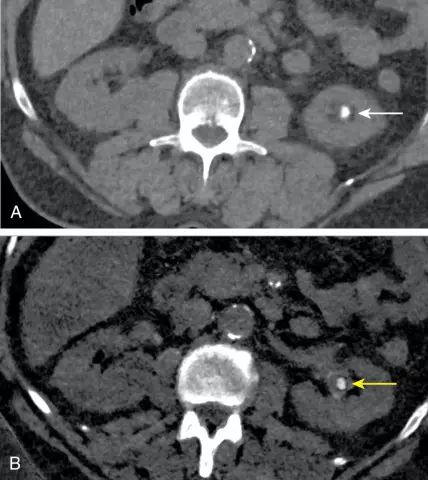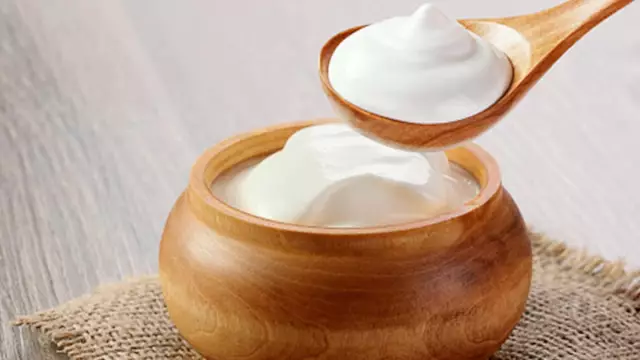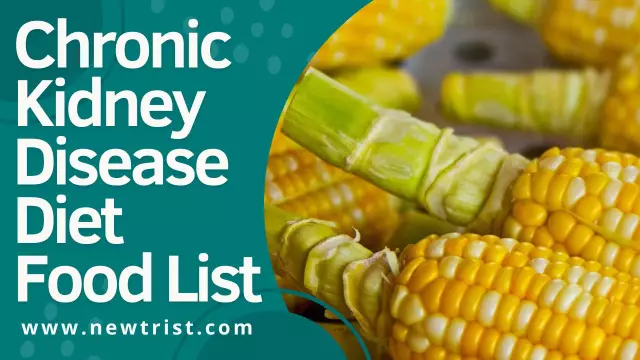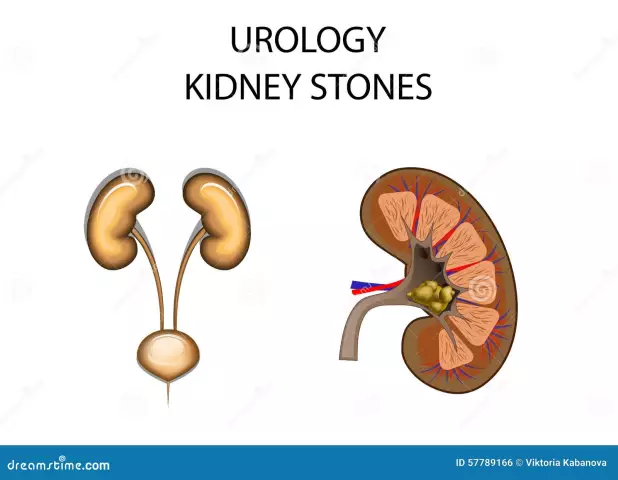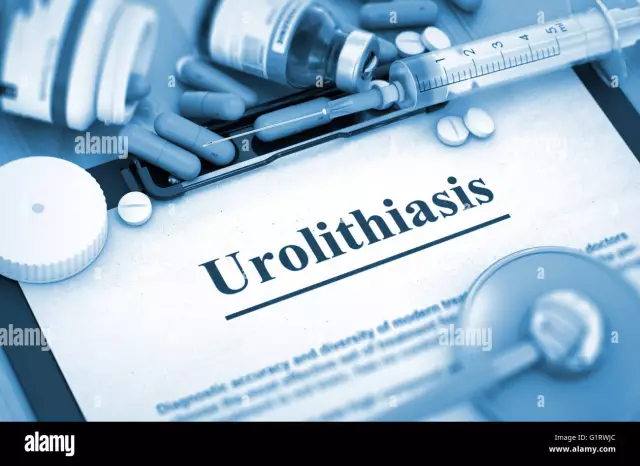- Author Rachel Wainwright wainwright@abchealthonline.com.
- Public 2023-12-15 07:39.
- Last modified 2025-11-02 20:14.
Diet for urolithiasis

Urolithiasis is a metabolic disorder, as a result of which a solid sediment forms in the urine, which falls into the lumens of the renal tubules and other urinary and urinary tracts. The metabolic disorder is based on gross errors in nutrition. Treatment of inflammatory diseases, for example, treatment of prostatitis, is basically medication, and the treatment of metabolic disorders always puts dietary nutrition at the forefront. Therefore, a diet for urolithiasis is not just desirable, it is a necessary condition for treatment, and after treatment - the main prevention of relapse.
That is, a diet for urolithiasis is not a temporary measure, but a constant, in the literal sense of the word "diet" - which, as you know, translates as a way of life. The stones formed during urate diathesis are divided into three main groups. Depending on which group the stones belong to, they develop a diet. The fact is that some types of stones, such as phosphates, for example, are formed with an alkaline reaction of urine, and harder oxalates and urates - with an acidic one. Therefore, it is necessary to adjust nutrition taking into account the reaction of urine and the type of stones. If these are calcium or magnesium phosphates, a diet that increases acidity is necessary, if other types of stones, then on the contrary, alkalization is required.
There are several general dietary rules for urolithiasis:
- normalize the diet - make it fractional, at least five times a day, observing equal intervals between meals;
- products should be of high quality, exclude those that contain food additives, so as not to overload the already weakened kidneys;
- to eliminate water retention, it is necessary to sharply limit salt intake;
- there must be a correct drinking regime. Kidney stones form when urine is concentrated. To prevent this from happening, you need to drink at least one and a half, and in the summer two liters of water a day. The exception is those who already have significant abnormalities in the functioning of the kidneys, due to which the kidneys cannot cope with a large amount of fluid. But in this case, the doctor must warn the patient about the special mode of drinking water.

If it is found that the stones are represented by oxalates, then products containing oxalic acid are excluded from the diet: chocolate, cocoa, sorrel, spinach. Helps dissolve oxalates from pears, grapes, apples. Urates require restriction of meat, fish, mushrooms and legumes, instead a dairy-vegetable diet, cereals is desirable. In contrast, the diet for phosphate urolithiasis restricts dairy products, calcium-containing vegetables, instead recommending meat products and baked goods. True, such a diet does not contribute to the proper functioning of the gastrointestinal tract, therefore it is prescribed for a short period, and then it is adjusted depending on the stage of treatment.
Found a mistake in the text? Select it and press Ctrl + Enter.

